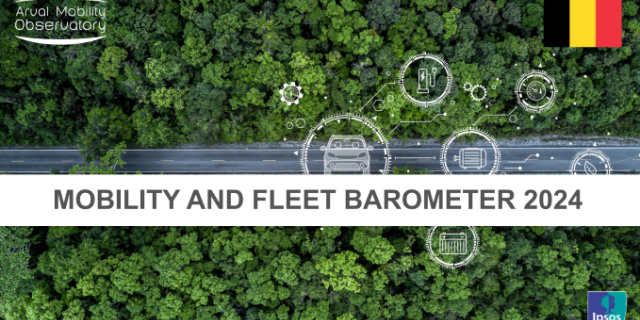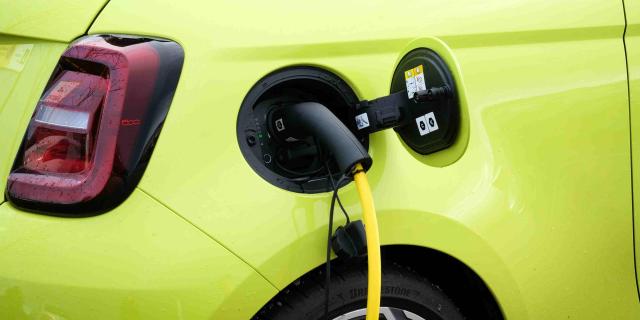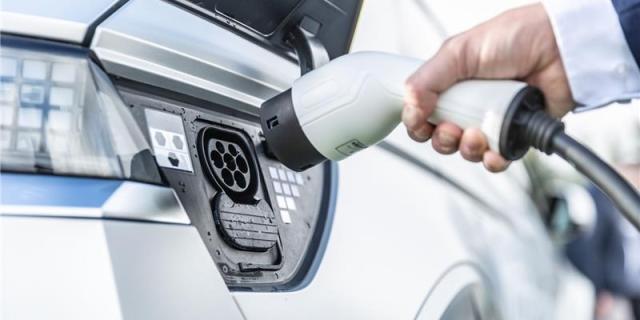Although 1 in 5 of the businesses surveyed in our country have or wish to implement a mobility budget, the company car is still a popular choice. No fewer than 9 in 10 businesses say that their fleet of vehicles has remained stable or, in the short term, may even expand. This is evident from the annual ‘Mobility and Fleet Barometer’ from the Arval Mobility Observatory, the centre of expertise from mobility solution company Arval.
- EVs are a success but the high purchase prices, charging solutions and limited model options remain a challenge
- Mobility budget and mobility solutions - the lease or shared bicycle being the most popular option - are gaining ground
- Operational leasing is growing in popularity
- The use of telematics remains limited in relation to business vehicles in our country
Following on from the annual barometer from the Arval Mobility Observatory in 30 countries, 300 Belgian (small, mid and large) businesses were surveyed about their mobility offering.
It found that the business vehicle fleet is pretty stable within Belgian companies and is even growing slightly in some cases, with 91% of the fleet managers estimating their fleets to remain stable or increase in the next 3 years. The company car remains an important factor during the recruitment process, and becomes even more relevant, with 43% companies mentioning that their increase of their fleet is directly linked to HR related needs. Although the company car is still very popular, fleet managers admit that they are facing challenges from increasingly stringent legislation and the obligatory transition to electrification.
Electrified fleet
Despite the necessary challenges, three in four companies have already taken the step towards alternative driving methods: Four in ten of the Belgian businesses surveyed already have PHEV and HEV vehicles in their fleet and one in five have full electric vehicles.
“The survey reveals three main reasons why a company makes the switch from conventional internal combustion engines to electrified vehicles: the introduction of low-emission zones and thus the restriction on travelling by car, the cost of fuel and, only in third place, the impact on the environment. And the story is no different when it comes to light commercial vehicles (LCVs). The cost of fuel is the main concern, followed by the TCO (Total Cost of Ownership) and tax considerations.”
- Yves Ceurstemont from the Arval Mobility Observatory Belgium
The fleet manager is still hesitating due to the high purchase price of electrified vehicles, the more limited model range and the need for charging facilities. To find a solution for this latter issue, 2 in 3 businesses who currently have plug-in vehicles in the fleet are considering charging stations at work and almost half of them are also considering offering charging stations at the employee’s homes. Despite the shift to a more sustainable vehicle fleet, however, the classic diesel and petrol cars are still evident in the market. When asked about their expectations for fleet composition in the next 3 years, the fleet managers estimate 20% of their fleets to be electrified by then.
Mobility solutions gaining ground
Nevertheless, there has been a major switch in the mobility offering that employers provide to their (future) employees. Almost 8 in 10 Belgian businesses currently provide alternative mobility solutions for home-work travel, with shared and leased bicycles taking the top spot. One in five companies also offer a mobility budget. 61% of these companies will also give complete disclosure regarding these budgets and the corresponding costs to the employees concerned. The primary reasons for implementing a broader mobility offering relates to Corporate Social Responsibility (CSR) and the ability for a company to profile itself as an attractive employer.
“A strong HR policy nowadays covers a comprehensive and customisable mobility offering. This is becoming increasingly important when recruiting or retaining employees. In concrete terms, the employee then has the option to make his own choices according to the internal policy or choose a mobility budget if that is more appropriate for his requirements. Alongside the company car, the employee then gains access to a subscription to a shared car, shared bicycle or public transport, financing for accommodation costs, and so on."
- Yves Ceurstemont from the Arval Mobility Observatory Belgium
Biggest challenges for the fleet market
The barometer indicated that the three biggest challenges facing fleet managers are as follows: the further transition to alternative driving methods, the ever-stricter regulations on diesel/petrol vehicles in general and the impact of Low Emission Zones and, finally, encouraging drivers to engage in more responsible driving techniques, particularly when drivers are taking the initial step to electrified vehicles. To realise the latter, businesses en masse are not yet applying technological solutions such as telematics, which use data collection to guide drivers towards a safer and more eco-friendly driving style. With their eye on improving road safety, one in three businesses uses or is considering the use of telematics.
Operational leasing is growing in popularity
So-called ‘operational leasing’, whereby vehicles are managed entirely by the leasing company, is the most popular form of financing for company cars and is continuing to gain ground. Two in five fleet managers indicate that they wish to use operational leasing more and this figure increases to around half the fleet managers in larger companies.
“A possible explanation is uncertainty regarding the residual value of electric cars and the search for clarity regarding the ultimate fiscal TCO of each individual vehicle. Leasing companies offer transparency and advice regarding the TCO and management of operational risks, including residual value.”
- Yves Ceurstemont from the Arval Mobility Observatory Belgium
Mobility and Fleet Barometer Belgium 2024






